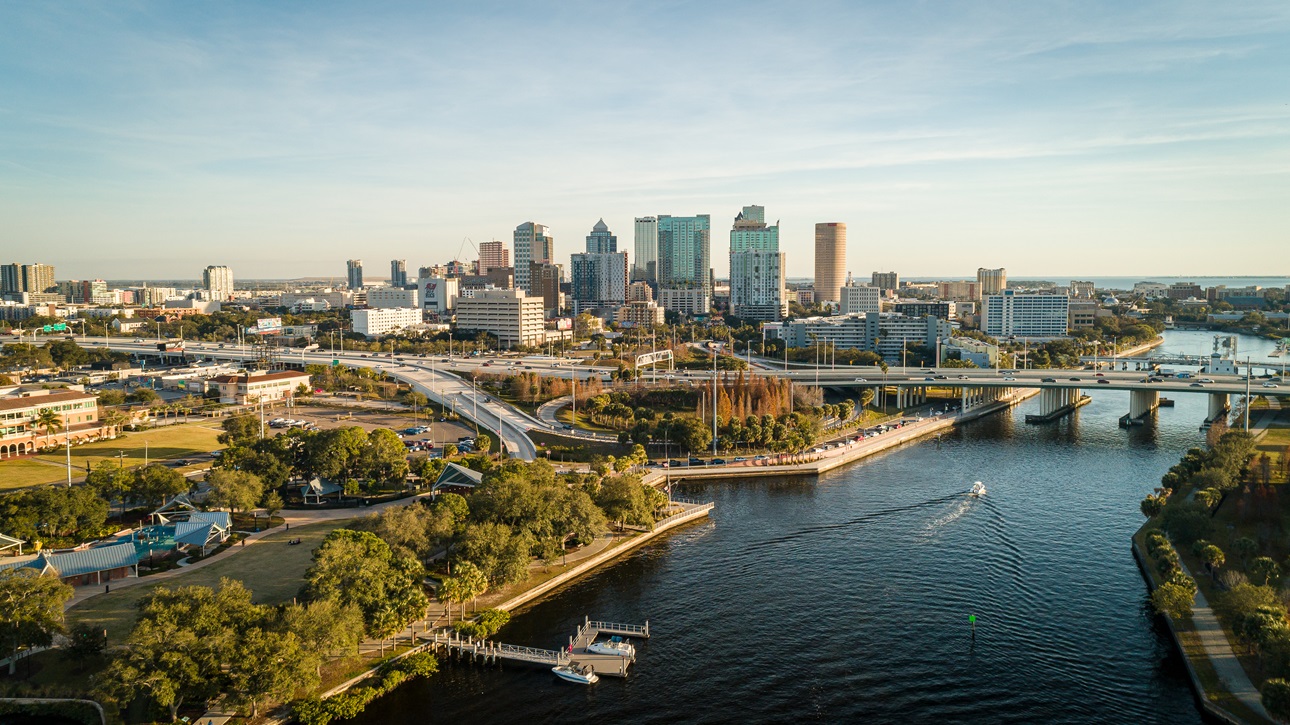佛罗里达州坦帕 vTAP:将雨水蓄水区改造为绿色、公平的社区资产

ULI 召开了 vTAP,为坦帕市拥有的雨水区提供创意设计和以公平为中心的解决方案,以解决雨水管理和保留问题,同时通过功能性和多用途用途增加价值和吸引力。它还探索了以公平结果为重点的绿色空间治理、财务运营和管理的成功框架。
背景和任务:
坦帕市要求 ULI 虚拟技术援助小组制定战略,将城市拥有和管理的雨水蓄水区改造为绿色和公平的社区资产。鉴于这些雨水区分布在城市各处,坦帕市旨在确保这些区域成为多功能的公共绿地。目前,这些市属雨水区由市政府维护’s 雨水部门,其主要用途是在天气事件期间作为径流收集器的主要用途。然而,利益相关者访谈表明,希望采用更具协作性的跨部门方法,以最大限度地为所有社区成员使用这些空间。具体来说,ULI 小组试图解决与坦帕市拥有的雨水池和其他绿地相关的以下问题:
- 创造性设计和以公平为中心的解决方案,用于解决雨水管理和保留问题,同时还通过对坦帕绿色空间的更多功能用途来增加价值和吸引力
- 以公平结果为中心的城市雨水区治理、运营和管理的成功框架
此外,该小组的任务是创造性地思考可能提供来自美国几个城市的鼓舞人心的例子,这些城市已经在强大的雨水池上进行了大量投资,并看到了绿色基础设施可以为投资回报率和生活质量带来的有形和无形的好处。坦帕的问题变成了如何将这些出色的例子扩展到社区规模的解决方案中。
主要建议:
在他们的审议过程中,小组成员将 vTAP 的范围扩大到最初关注已确定的雨水滞留区域,更广泛地关注公平的社区参与和治理流程,以执行具有复原力的大局愿景。高层建议包括:
- 围绕共同的愿景发展和凝聚‘大创意’连接整个城市的绿地和雨水基础设施
- 设计和组织多效益解决方案:防洪、经济开发、公共聚集空间、绿色基础设施、恢复生态功能和步道连接
- 创建和内部化一种新的整体和可扩展的方法,通过改造坦帕基于多效益分析对项目进行排名和优先级排序’s Tomorrow / Resilient Tampa 镜头,并连接到“大创意”
- 建立和制度化可扩展的全市社区参与计划
报告摘要:ULI 召开了 vTAP,为坦帕市拥有的雨水区提供创意设计和以公平为中心的解决方案,以解决雨水管理和保留问题,同时通过功能性和多用途用途增加价值和吸引力。它还探索了以公平结果为重点的绿色空间治理、财务运营和管理的成功框架。
背景和任务:
坦帕市要求 ULI 虚拟技术援助小组制定战略,将城市拥有和管理的雨水蓄水区改造为绿色和公平的社区资产。鉴于这些雨水区分布在城市各处,坦帕市旨在确保这些区域成为多功能的公共绿地。目前,这些市属雨水区由市政府维护’s 雨水部门,其主要用途是在天气事件期间作为径流收集器的主要用途。然而,利益相关者访谈表明,希望采用更具协作性的跨部门方法,以最大限度地为所有社区成员使用这些空间。具体来说,ULI 小组试图解决与坦帕市拥有的雨水池和其他绿地相关的以下问题:
- 创造性设计和以公平为中心的解决方案,用于解决雨水管理和保留问题,同时还通过对坦帕绿色空间的更多功能用途来增加价值和吸引力
- 以公平结果为中心的城市雨水区治理、运营和管理的成功框架
此外,该小组的任务是创造性地思考可能提供来自美国几个城市的鼓舞人心的例子,这些城市已经在强大的雨水池上进行了大量投资,并看到了绿色基础设施可以为投资回报率和生活质量带来的有形和无形的好处。坦帕的问题变成了如何将这些出色的例子扩展到社区规模的解决方案中。
主要建议:
在他们的审议过程中,小组成员将 vTAP 的范围扩大到最初关注已确定的雨水滞留区域,更广泛地关注公平的社区参与和治理流程,以执行具有复原力的大局愿景。高层建议包括:
- 围绕共同的愿景发展和凝聚‘大创意’连接整个城市的绿地和雨水基础设施
- 设计和组织多效益解决方案:防洪、经济开发、公共聚集空间、绿色基础设施、恢复生态功能和步道连接
- 创建和内部化一种新的整体和可扩展的方法,通过改造坦帕基于多效益分析对项目进行排名和优先级排序’s Tomorrow / Resilient Tampa 镜头,并连接到“大创意”
- 建立和制度化可扩展的全市社区参与计划


